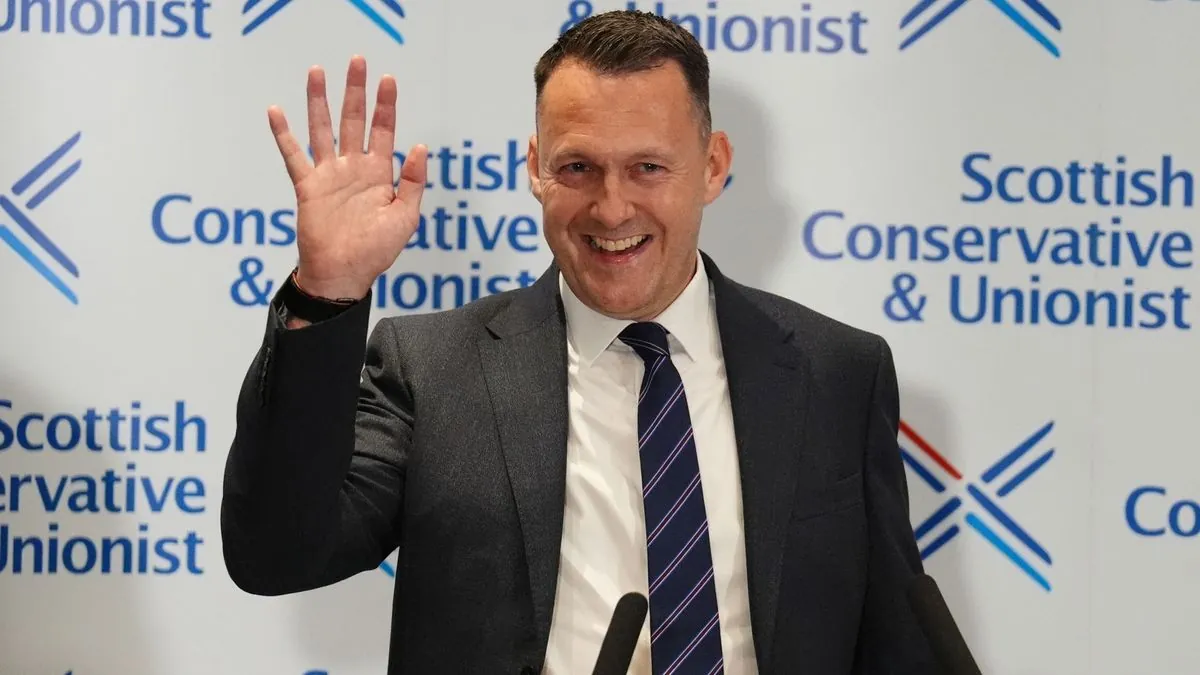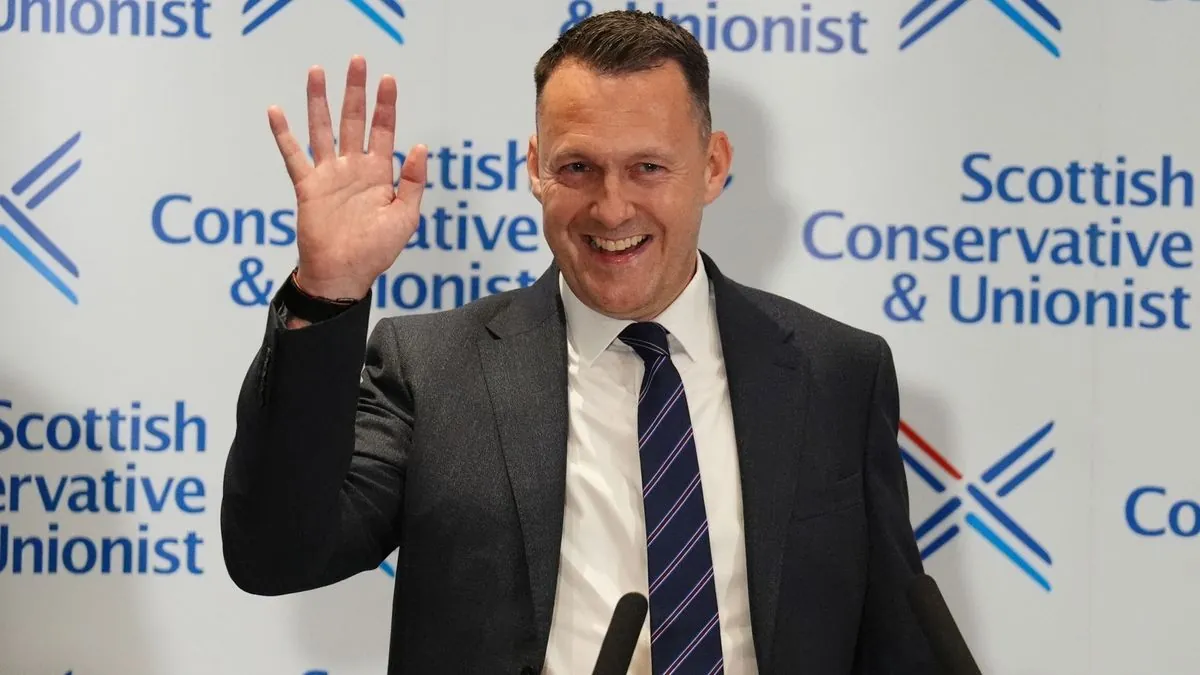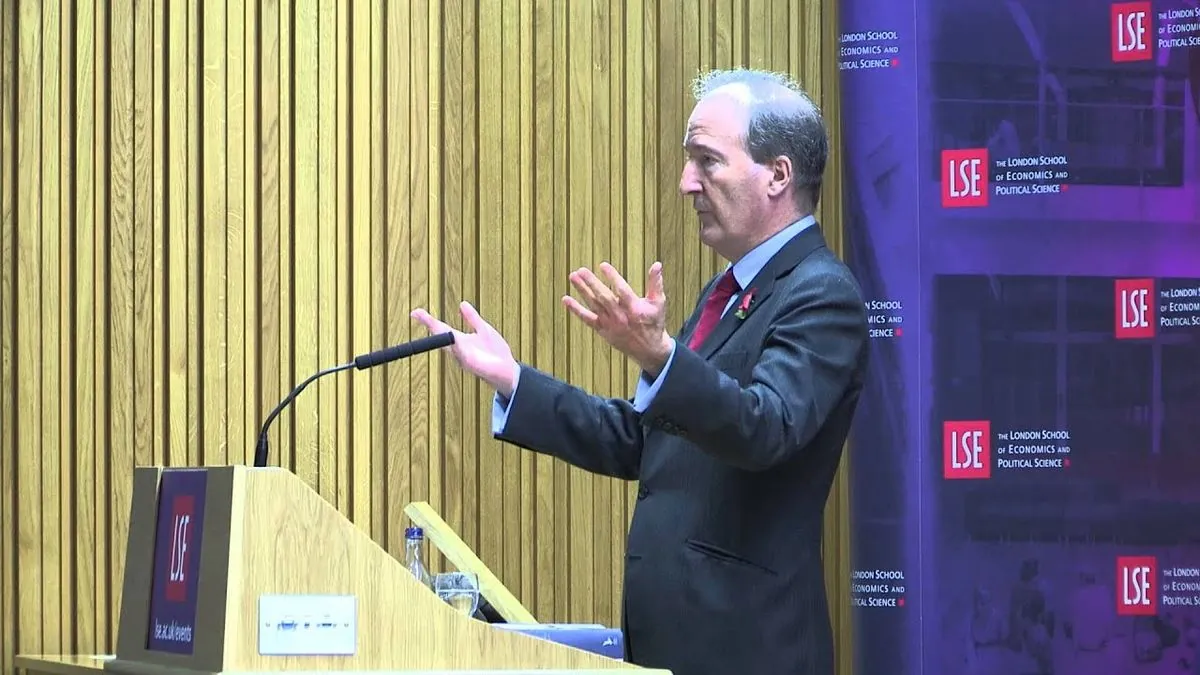New Scottish Tory Leader Faces Uphill Battle Amid Party Challenges
Russell Findlay, the newly appointed Scottish Conservative leader, confronts immediate tests as he navigates internal party divisions and external political pressures. With limited experience, Findlay must swiftly establish his leadership before the 2026 election.

Russell Findlay, the recently appointed leader of the Scottish Conservative and Unionist Party, faces significant challenges as he steps into his new role. With limited political experience, Findlay must quickly adapt to the demands of leadership in a complex political landscape.
Findlay's first major test comes this weekend, as he participates in two high-profile events. On Saturday, he will meet King Charles during celebrations marking the 25th anniversary of the Scottish Parliament's establishment. This milestone event highlights the significant changes in Scottish governance since 1999, when the parliament was created as part of the UK's devolution process.
Following this ceremonial occasion, Findlay will address the UK Conservative Party conference in Birmingham. This annual gathering serves as a crucial platform for party members and politicians to discuss policy and strategy. Findlay's appearance will be closely watched, as he attempts to make a positive impression on UK Tory grassroots representatives who have historically shown limited interest in Scottish matters.

Findlay's predecessors cast long shadows over his new position. Ruth Davidson, who led the Scottish Conservatives from 2011 to 2019, and Douglas Ross, who succeeded her in 2020, both established themselves as formidable opponents to the Scottish National Party (SNP). Findlay must now prove himself capable of continuing their legacy of effective opposition.
Internally, the Scottish Conservative Party faces significant challenges. Findlay inherits a party grappling with declining membership and internal divisions, as evidenced by the contentious leadership race that brought him to power. Unifying the party and rebuilding its relevance as a political force in Scotland are paramount tasks for the new leader.
Externally, the threat posed by the Reform UK party looms large. Founded by Nigel Farage in 2018, Reform UK's right-wing platform has already caused losses for the Scottish Conservatives, particularly in the July 4, 2024 elections. Findlay must navigate this challenge while maintaining his party's traditional center-right position.
The political landscape in Scotland remains dynamic. The SNP, despite recent setbacks, continues to be a formidable force, having governed Scotland since 2007. Meanwhile, the Scottish Labour Party, buoyed by recent successes, is actively preparing for the next Scottish Parliament election in May 2026.
As Findlay looks ahead to this crucial election, he must swiftly develop and articulate his policy positions. The Scottish Parliament, with its 129 Members of Scottish Parliament (MSPs) and devolved powers over areas such as health, education, and justice, provides a significant platform for shaping Scotland's future.
"Unity is important, but rebuilding our party as a relevant political force is an even bigger task."
Findlay's background as a former journalist may prove valuable as he engages with the media and articulates his vision for the party. However, he should not expect an easy ride from his former colleagues in the Scottish political press.
As the clock ticks towards the 2026 election, Findlay must work diligently to establish himself as a credible leader, unify his party, and present a compelling alternative to both the SNP and Labour. The challenges are significant, but the opportunity to reshape the Scottish Conservatives' role in Scotland's political future lies before him.


































